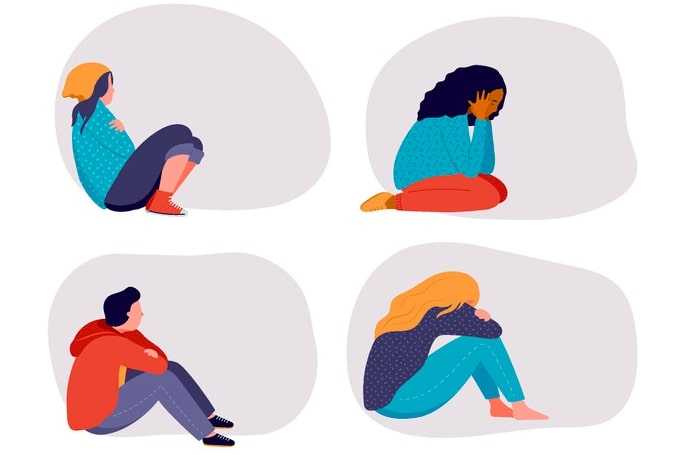Are younger Americans overloaded on mental health awareness?

Image: Harvard Health
In recent years, mental health awareness in the US has become a central subject of childhood and adolescence. Many school systems have introduced preventive coursework in emotional self-regulation and mindfulness, while such topics are also widely covered across social media.
But some scientists point to a growing amount of research indicating that, while mental health awareness campaigns are helpful for some young people who need treatment, they can also have a negative effect on others who over-interpret their symptoms and think they’re more troubled than they are.
A few examples:
- University of Oxford researchers published a study last year suggesting that a recent increase in the reporting of mild or transient symptoms as mental health disorders is partially due to awareness campaigns.
- Students in the UK and Australia who learned the basics of mindfulness, cognitive behavioral therapy, and dialectical behavior therapy consistently reported feeling slightly less healthy over the following months than their peers who didn’t participate.
- A US-based study published last month found that among young people, “self-labeling” as having depression or anxiety is associated with poor coping skills like avoidance and rumination.
The arguments: Some scientists theorize that it may not help to bring awareness to the symptoms of mental health, since it encourages people to sit with darker feelings while often failing to provide solutions – especially for societal problems like racism or poverty.
- However, this remains a minority view among specialists in adolescent mental health, who mostly point to large meta-analyses that show students on average benefit from social and emotional learning courses.
Looking ahead… A growing number of experts are advising school systems to proceed cautiously with large-scale mental health interventions until further research has clarified their potential negative effects.
📊 Flash poll: In your opinion, are younger Americans overexposed to the subject of their mental health?
See a 360° view of what media pundits are saying →

Sprinkles against widespread youth mental health awareness
- Some commentators argue that mental health awareness campaigns are based on the premise that awareness should ultimately alleviate people’s distress – but the trouble is that scientists have yet to prove that awareness initiatives actually work in this way.
- Others contend that America’s mental health crisis is real – but in an attempt to bring more attention to the issue, we’re becoming a nation that increasingly defines itself as mentally fragile and unwell.
- “What if we’re talking about teens’ mental health too much?” –Lucy Foulkes, STAT News
- “Mental-Health Awareness Can Be Bad for Mental Health” –Clay Routledge, WSJ
- “The definition of mental health has been widened so much that it’s now almost meaningless” –Martha Gill, The Observer

Sprinkles in favor of widespread youth mental health awareness
- Some commentators argue that mental health awareness and similar programs play a key role in creating opportunities for young people to discover and engage with care options that center them and meet their specific needs.
- Others contend that failing to recognize the symptoms of negative mental health in children risks further worsening the long-term health risks associated with young people who have those negative experiences.
- “Our kids need access to mental health services now more than ever. We must all step up.” –Katie Rast, San Diego Union-Tribune
- “More Than Ever, We Must Prioritize the Mental Health and Well-being of Children” –Rachel Velcoff Hults and Dr. Steven Adelsheim, Stanford Medicine
- “We are at crisis point in addressing youth mental health” –Jamie Merrill, Orlando Sentinel
Share this!
Recent Discussion stories

Discussion
| May 6, 2024“Double haters” are shaping the 2024 presidential election
🗳️😠 Yesterday marked exactly six months until the upcoming presidential election. And November is starting to come into focus, thanks to new polling data regarding a group of voters increasingly called “double haters.”

Discussion
| May 3, 2024US lawmakers want to reign in the TSA’s use of facial recognition
✈️👤 A bipartisan group of senators is pushing for restrictions on the use of facial recognition tech by the TSA, citing concerns that travelers’ privacy and civil liberties may be at risk.

Discussion
| May 1, 2024The AI industry is filled with potential conflicts of interest
🤖 Last month, the DOJ revealed that it’s closely monitoring the AI industry for potential conflicts of interest due to shared board members between AI competitors.
You've made it this far...
Let's make our relationship official, no 💍 or elaborate proposal required. Learn and stay entertained, for free.👇
All of our news is 100% free and you can unsubscribe anytime; the quiz takes ~10 seconds to complete